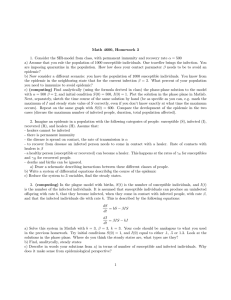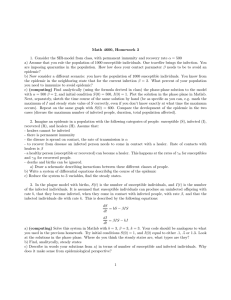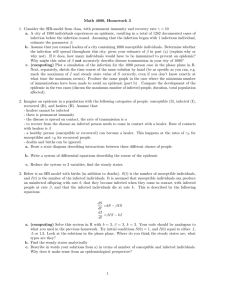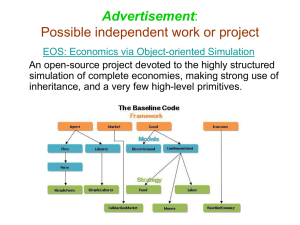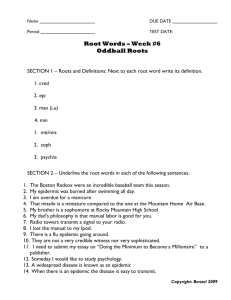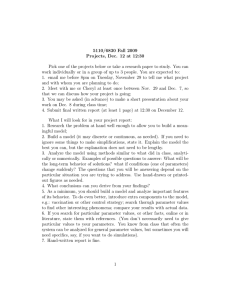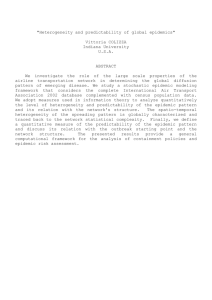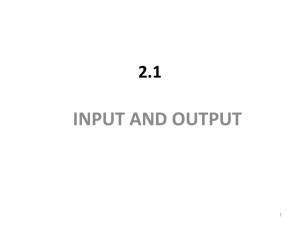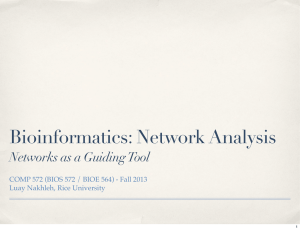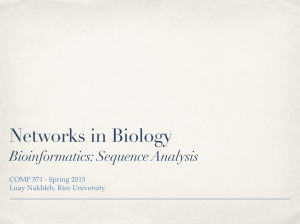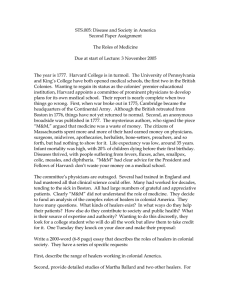Math 3900 Spring 2009 Homework 6, due February 27
advertisement
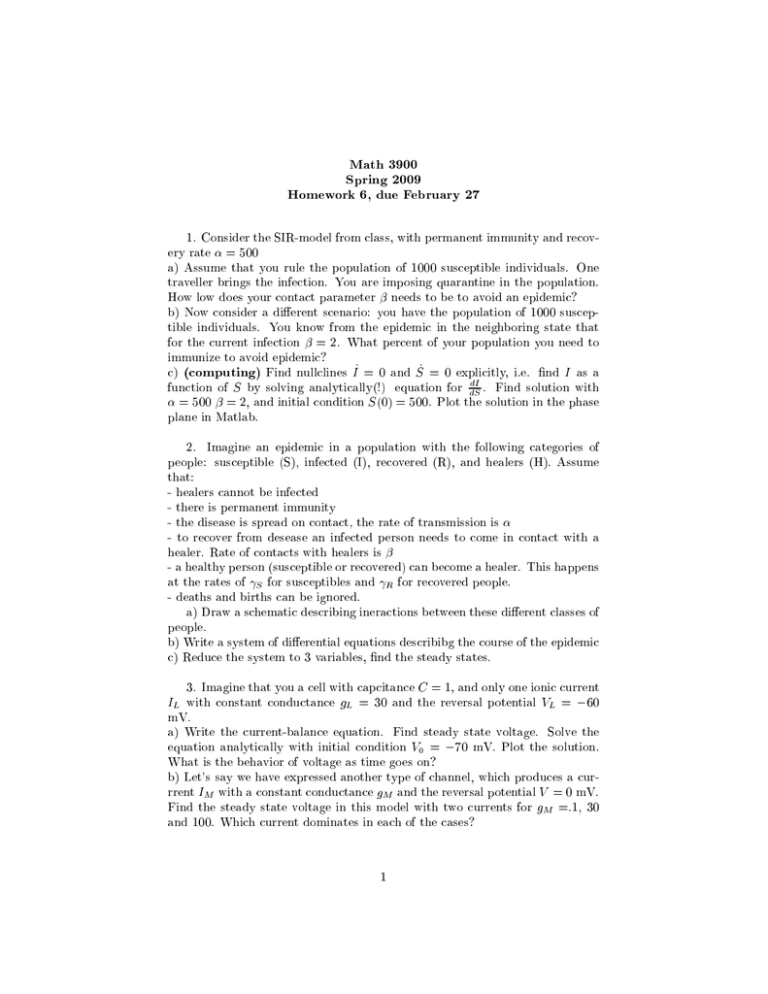
Math 3900 Spring 2009 Homework 6, due February 27 1. Consider the SIR-model from class, with permanent immunity and recovery rate = 500 a) Assume that you rule the population of 1000 susceptible individuals. One traveller brings the infection. You are imposing quarantine in the population. How low does your contact parameter needs to be to avoid an epidemic? b) Now consider a dierent scenario: you have the population of 1000 susceptible individuals. You know from the epidemic in the neighboring state that for the current infection = 2. What percent of your population you need to immunize to avoid epidemic? c) (computing) Find nullclines I_ = 0 and S_ = 0 explicitly, i.e. nd I as a dI . Find solution with function of S by solving analytically(!) equation for dS = 500 = 2, and initial condition S (0) = 500. Plot the solution in the phase plane in Matlab. 2. Imagine an epidemic in a population with the following categories of people: susceptible (S), infected (I), recovered (R), and healers (H). Assume that: - healers cannot be infected - there is permanent immunity - the disease is spread on contact, the rate of transmission is - to recover from desease an infected person needs to come in contact with a healer. Rate of contacts with healers is - a healthy person (susceptible or recovered) can become a healer. This happens at the rates of S for susceptibles and R for recovered people. - deaths and births can be ignored. a) Draw a schematic describing ineractions between these dierent classes of people. b) Write a system of dierential equations describibg the course of the epidemic c) Reduce the system to 3 variables, nd the steady states. 3. Imagine that you a cell with capcitance C = 1, and only one ionic current IL with constant conductance gL = 30 and the reversal potential VL = 60 mV. a) Write the current-balance equation. Find steady state voltage. Solve the equation analytically with initial condition V0 = 70 mV. Plot the solution. What is the behavior of voltage as time goes on? b) Let's say we have expressed another type of channel, which produces a currrent IM with a constant conductance gM and the reversal potential V = 0 mV. Find the steady state voltage in this model with two currents for gM =.1, 30 and 100. Which current dominates in each of the cases? 1
